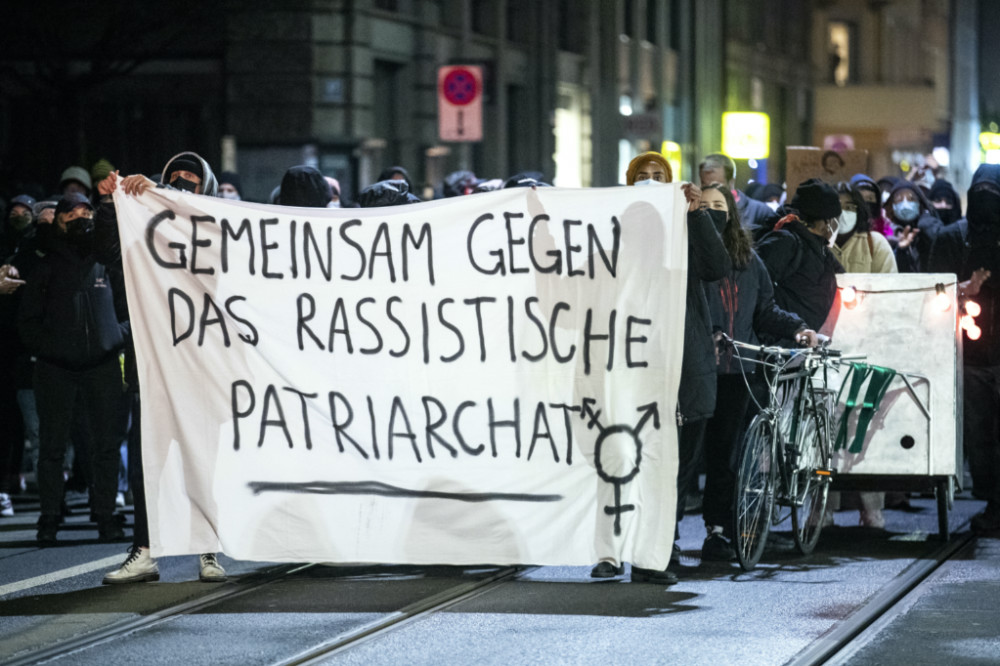Geneva, Switzerland
AP
The UN human rights office expressed dismay on Tuesday that Switzerland is set to join a few other countries where “actively discriminating against Muslim women” is legal, after Swiss voters approved a ban on face coverings like burqas and niqabs that some Muslim women wear.
In a referendum on Sunday, Swiss voters narrowly approved a measure to ban the wearing of full-face-covering burqas and niqabs, which have slits for the eyes, in addition to ski masks and bandannas worn by some protesters.

Demonstrators hold sign reading “the racist patriarchy went together” during a protest after the Burqa ban referendum was narrowly approved by the electorate, on Sunday, 7th March, in Bern Switzerland. Swiss voters have narrowly approved a proposal to ban face coverings, both the niqabs and burqas worn by a few Muslim women in the country and the ski masks and bandannas used by protesters. PICTURE: Alexandra Wey/Keystone via AP.
The move will outlaw covering one’s face in public places, with some exceptions – including for health reasons like wearing masks to help prevent the spread COVID-19. Authorities now have two years to draw up detailed legislation.
Ravina Shamdasani, a rights office spokeswoman, acknowledged it was a “divisive issue” and said women shouldn’t be forced to cover their faces, but “the use of the law to dictate what women should wear is problematic from a human rights perspective.”
“The legal ban on face coverings will unduly restrict women’s freedom to manifest their religion or beliefs and has a broader impact on their human rights,” she told reporters at a regular UN briefing in the Swiss city of Geneva.
She said the International Covenant on Civil and Political Rights, a landmark human rights agreement, allows some limits on such freedom to protect public safety, health, order and morals, among other things, but that “vague justifications” about how face coverings are a threat were not legitimate.
The Swiss Government had opposed the referendum proposal, calling full-face coverings a “marginal phenomenon”. Experts estimate that at most a few dozen Muslim women wear them in the country of 8.5 million people. Burqas and niqabs are far more common in places like Persian Gulf countries or Afghanistan.
A populist, right-wing Swiss party strongly favoured the measure, while left-leaning parties opposed it. The approval puts Switzerland on track to join countries including Belgium and France that have already enacted similar measures.
“Now that the initiative has passed, in the wake of a political publicity campaign with strong xenophobic undertones, Switzerland is joining the small number of countries where actively discriminating against Muslim women is now sanctioned by law,” Shamdasani said. “And this is deeply regrettable.”
Such a ban, she said, could prompt greater marginalisation of Muslim women at a time when they have reported growing discrimination, stereotypes, hostility “and in some cases even physical violence” because of their clothing.






